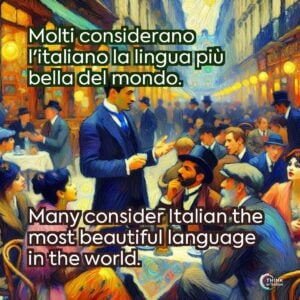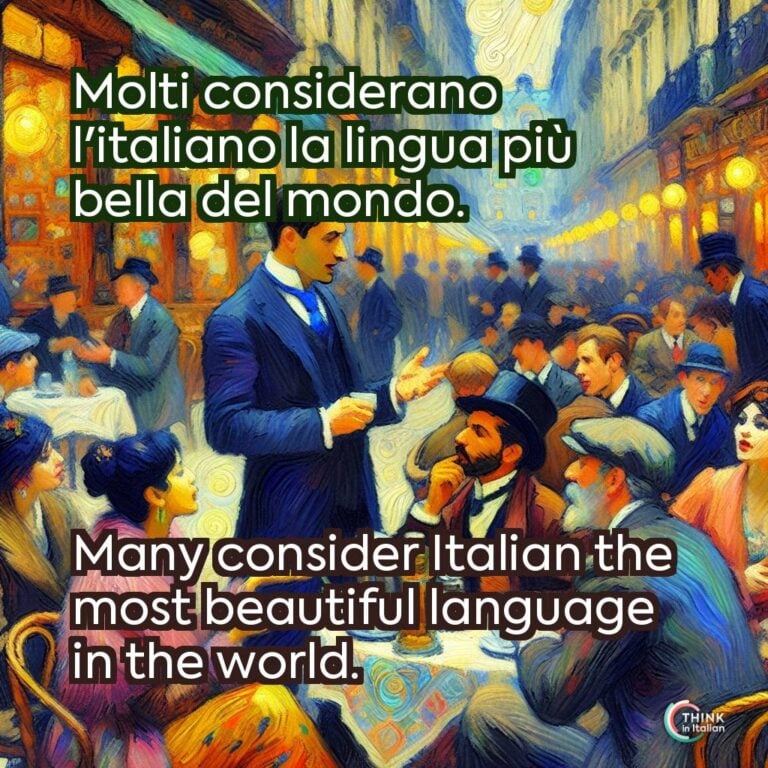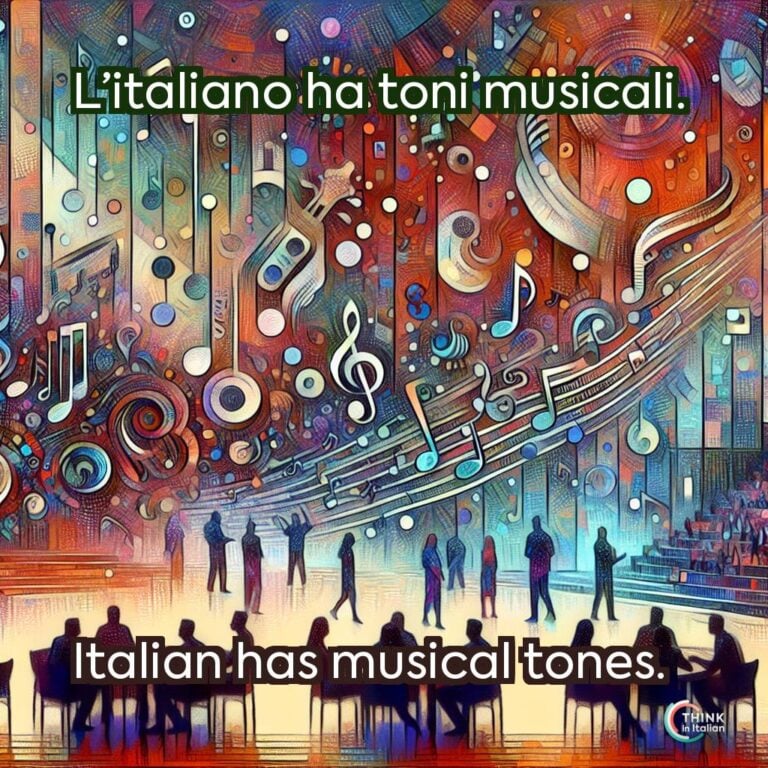Is Italian the Most Beautiful Language in the World?
Italy enchants the world with its art, history, and scenic beauty, and of course its language reflects it all. Italian is often praised as one of the most beautiful languages, even if opinions on this are as varied.
So, is Italian really the most beautiful language? It is true that beauty is subjective, but there are several objective factors that make Italian uniquely appealing.
If you are wondering “why should I learn Italian?“, read the reasons why Italian is considered a very beautiful language and create your own opinion about it.
Why is Italian so Beautiful?
Phonetic Structure
Italian’s phonetic structure is one of the primary reasons why it sounds so well to people’s ears: it has a high ration of vowel to consonants which makes its sentences sound fluid.
Most words end with a vowel, creating a smooth cadence and limited clusters, which is the main reason why Italian was chosen as the primary language of opera: its musicality.
This musicality has solidified Italian’s reputation as a “beautiful” language, creating a connection that goes beyond mere spoken word to one that resonates in performance and music.
The Power of Open Vowels
Still related to its musicality, another big reason why Italian sounds beautiful is because of its open vowels, which allow air to flow more freely and give the language a sing-song quality.
Consider the phrase ti amo (I love you): each word has an open vowel ending, which makes it easy to pronounce without abrupt stops. The result is a phrase that sounds like it could be sung.
Consonants in Harmony
Italian is a language that balances its consonants and vowels perfectly. As long as my foreign friends say, Italian does have some consonants that stand out – the main example I am given is the rolled r – but these are often well blended with the vowels.
This balance is particularly important in making the language pleasing to the ear: it creates a rhythm that flows naturally.
My Personal Perspective
I know this paragraph will be biased, because I am a native Italian speaker and I might like Italian just because it’s my first language. But I am also a linguist, which gives me the tools to analyze Italian from a more objective point of view.
Linguistically speaking, I believe Italian is captivating for its blend of structure, expressive grammar, and carefully chosen vocabulary, all of which contribute to its poetic reputation.
Italian grammar is both rich and flexible, which provides speakers with a varied set of linguistic tools to express complex thoughts and emotions.
For instance, think of the subjunctive mood, a verb tense that most of my students hate because of its difficulty: it plays a significant role in everyday language as it allows to convey doubt, desire, or hypothetical scenarios.
Just stop for a second and think of it: there is an inherent linguistic structure thanks to which you can express these deep and complex meanings.
Another striking feature for me is Italian’s vocabulary: I find it very precise and evocative, with each term conveying a specific shade. This diversity in vocabulary means that Italian can communicate both practical and emotional information with clarity.
Italian’s sentence structure adds another layer to its beauty, thanks to its flexibility. For instance, you might shift the placement of words to subtly change the tone or emphasis, which allows to add poetic layers to the speech.
Lastly, Italian’s linguistic evolution: stemming from Latin, it developed from the local dialects spoken across Italy. Among these, the Tuscan dialect became the foundation of modern Italian, thanks to influential writers like Dante Alighieri, Petrarch, and Boccaccio.
Today, Italian keeps this blend of formal, literary language and lively regional expressions, making it a language that carries Italy’s history, art, and culture in every phrase.
Undoubtedly a Very Beautiful Language
Ultimately, the question of whether Italian is the “most beautiful language” boils down to personal taste, cultural exposure, and individual experiences.
Italian’s combination of musicality, expressive openness, and historical prestige certainly makes it a global favorite, carrying a legacy of beauty that resonates across languages and cultures.






